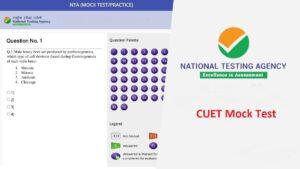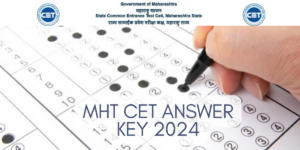Table of Contents
CBSE Class 11 History Syllabus 2023-24: The Central Board of Secondary Education (CBSE) has released the class 11th History curriculum for the 2023-2024 school year. History (code number 027) is an important course for students in the Humanities track. The syllabus has information about the course’s organization and what will be covered in each unit. It also has information about how students will be graded internally, a list of map works, and a description of how a question paper will be made. History is an important humanities subject that is quite important for all competitive examinations. The class 11 history syllabus of the CBSE has been divided into 4 sections: Early Societies, Empires, Changing Traditions, and Towards Modernization. The full syllabus is listed below, and candidates can use the direct link to download the PDF.
CBSE Class 11 History Syllabus 2023-24
The following things are on the CBSE Class 11 History Syllabus for 2023-2024:
The Rise of Nationalism in India: From the beginning of the 19th century until the Indian Independence Movement, this unit looks at how nationalism grew in India.
The Making of the Indian National Congress: This unit talks about how the Indian National Congress got started, what it did in its early years, and what part it played in the Indian Independence Movement. The Fight for Freedom, 1857–1947: From the Revolt of 1857 to the Partition of India, this unit looks at the different parts of the Indian Independence Movement. The Indian Constitution: This unit talks about how the Indian Constitution was written and passed, as well as what its main parts are. The Making of Modern India: This unit is about the most important things that have happened in India since it got its independence. These include historical and economic improvements, political changes, and social changes.
CBSE Class 11 History Syllabus 2023-24 PDF
Download CBSE Class 11 History Syllabus 2023-24 PDF by Clicking on the below link.
CBSE Class 11 History Syllabus 2023-24
CBSE Class 11 History Syllabus 2023-24 Course structure
The course structure of the CBSE class 11 history subject is bifurcated into two parts, namely theory and project work. The theory examination is held for 80 marks while the project work accounts for 20 marks. The theory part also tests the map knowledge of a student. The table below consists of CBSE Class 111 history syllabus 2023-24 course structure.
| Section Title | Theme No | Theme Title | Marks |
| Reading of World History | Introduction of world History | ||
| Introduction Timeline I (6 MYA TO 1 BCE) | |||
| EARLY SOCIETIES | 1 | Writing and City Life | 10 |
| EMPIRES | Introduction Timeline II (C. 100 BCE TO 1300 CE) | ||
| 2 | An Empire Across Three Continents | 10 | |
| 3 | Nomadic Empires | 10 | |
| CHANGING TRADITIONS | Introduction Timeline III (C. 1300 TO 1700) | ||
| 4 | The Three Orders | 10 | |
| 5 | Changing Cultural Traditions | 10 | |
| TOWARDS MODERNIZATION | Introduction Timeline IV (C. 1700 TO 2000) | ||
| 6 | Displacing Indigenous Peoples | 10 | |
| 7 | Paths to Modernization | 15 | |
| Map | Map work of the related Themes | 05 | |
| Theory Total | 80 | ||
| Project work | 20 | ||
| TOTAL | 100 |
As we can observe from the above course structure, Towards Modernization section holds the highest marks (25 marks). The above marks distribution of the class 11 history subject will help students in allocating relevant time to each sections.
CBSE Class 11 History Syllabus 2023-24 Question paper design
The table below consists of CBSE Class 11 history syllabus 2023-24 question paper design
| Section | Theme | MCQ mm-1 | SA mm-3 | LA mm-8 | Source-based mm-4 | Total |
| I EARLY SOCIETIES | 1 | 3 | 1 | 0 | 1 | 10 |
| II EMPIRES | 2
3 |
4 | 0 | 2 | 0 | 20 |
| III CHANGING TRADITIONS | 4
5 |
6 | 2 | 0 | 2 | 20 |
| IV TOWARDS MODERNISATION | 6
7 |
8 | 3 | 1 | 0 | 25 |
| MAP | 05 | |||||
| TOTAL | 21×1=21 | 6×3=18 | 8×3=24 | 4×3=12 | 80 |
CBSE Class 11 History Syllabus 2023-24 theme-wise syllabus
The table below consists of theme wise syllabus of CBSE Class 11 history 2023-24.
| Theme | Learning outcome with specific competencies |
Section: Early societies |
|
| Timeline I (6 MYA TO 1 BCE) | |
| Theme 1
Writing and City Life Focus: Iraq, 3rd millennium BCE a. Growth of towns b. Nature of early urban societies c. Historians’ Debate on uses of writing. |
Elucidate the interwoven social and cultural aspects of civilization in order to understand the connection between city life and culture of contemporary civilizations through their writings.
Analyze the outcomes of a sustained tradition of writing. Explain the connection between the growth of human civilisation and the tradition of writing. |
Section: Empires |
|
| Timeline II (C.100 BCE TO 1300 CE) | |
| Theme 2
An Empire across Three Continents |
Understanding the periods in order of time.
Explain and relate the dynamics of the Roman Empire in order to understand their polity, economy, society and culture. Analyze the implications of Roman’s contacts with the subcontinent empires and discuss about slavery. Examine the domains of cultural transformation in that period & the impact of slavery. Distinguish between the Mongolian people’s perspective and the world’s opinion about Genghis Khan |
| Theme 3
NOMADIC EMPIRES |
Identify the living patterns of nomadic pastoralist society.
Trace the rise and growth of Genghis Khan in order to understand him as an oceanic ruler. Analyze socio-political and economic changes during the period of the descendants of Genghis Khan. Distinguish between the Mongolian people’s perspective and the world’s opinion about Genghis Khan. |
| Timeline III (C. 1300 TO 1700) | |
| Theme 4 The Three Orders | Explain the myriad aspects of feudalism with special reference to first, second, third and fourth order of the society.
Relate between ancient slavery and serfdom. Assess the 14th century crisis and rise of the nation states |
Section: Changing traditions |
|
| Theme 5 Changing Cultural Traditions | Analyze the causes, events, and effects of the Renaissance, Reformation, Scientific Revolution, and Age of Exploration.
Relate the different facets of Italian cities to understand the characteristics of Renaissance Humanism and Realism. Compare and contrast the condition of women in the Renaissance period. Recognize major influences on the architectural, artistic, and literary developments to understand the facades of Renaissance. Critically analyze the impact on later reforms. Evaluate the Roman Catholic Church’s response to the Protestant Reformation. |
Section: Towards Modernization |
|
| Timeline IV
(C. 1700 TO 2000) |
Remember and understand the time frame. |
| Theme 6 Displacing Indigenous People | Evaluate the process of displacements of the native people which led to the development of America and Australia to understand their condition.
To analyze the realms of settlement of Europeans in Australia and America. Compare and contrast the lives and roles of indigenous people in these continents |
| Theme 7 Paths to Modernization | Deduce the histories of China and Japan from the phase of imperialism to modernization.
Explore the Japanese political, cultural and economic system prior to and after the Meiji Restoration. Analyze the domains of Japanese nationalism prior and after the Second World War. Summarize the nationalist upsurge in China from Dr Sun Yet Sen to Mao Ze Dong to understand the era of communism. To analyze the Chinese path to modernization under Deng Xio Ping and Zhou en Lai in order to understand the transformation from rigid communism to liberal socialism. |
Also check ,


 CUET Mock Test 2024 Series Online, Downl...
CUET Mock Test 2024 Series Online, Downl...
 MHT CET Answer Key 2024 PDF, Download Li...
MHT CET Answer Key 2024 PDF, Download Li...
 NEET Biology Expected Paper 2024, Import...
NEET Biology Expected Paper 2024, Import...















